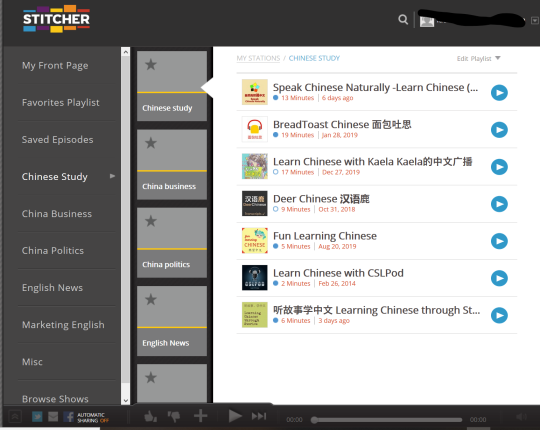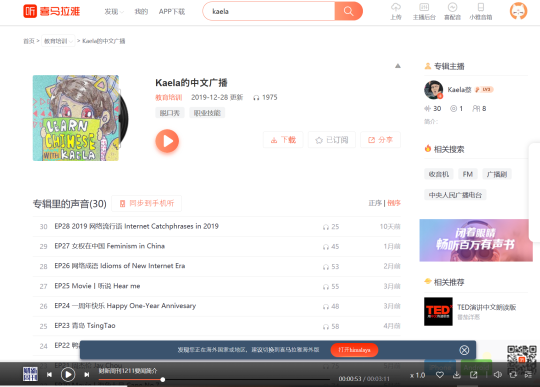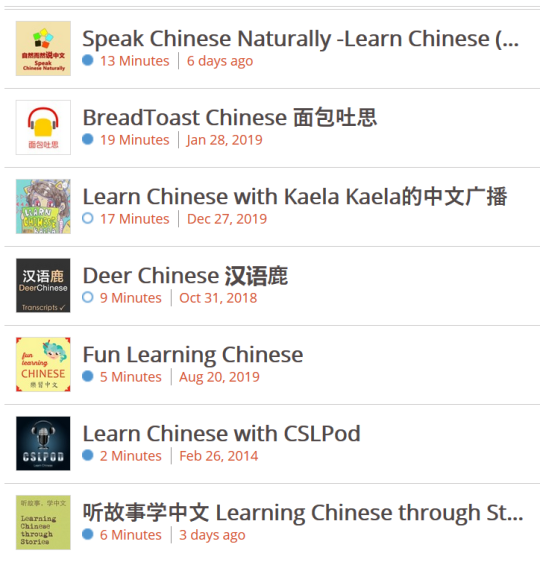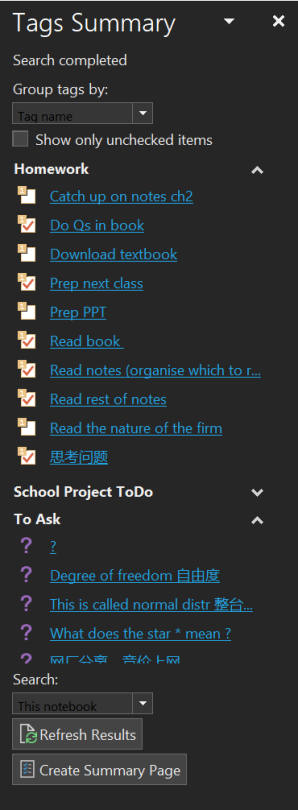#mandarinblr
Let’s rewind back to my Chinese school and high school Chinese class days. Sometimes the teachers would play Chinese music (yay). Today, we’re revisiting 10 songs that have stuck with me over the years. If you haven’t heard them before, go check them out for the true Chinese class soundtrack experience.
Warning: videos may take a sec to load!
(1)任贤齐 - 对面的女孩看过来
♫:寂寞男孩的悲哀 说出来 谁明白
(2)周华健 - 朋友
♫:终有梦 终有你 在心中
(3)邓丽君 - 甜蜜蜜
♫:你的笑容这样熟悉 我一时想不起
(4)王启文 - 老鼠爱大米
♫:不管有多少风雨 我都会依然陪着你
(5)S.H.E. - Super Star
♫:如果我忘了我 请帮忙记得我
(6)筷子兄弟 - 小苹果
♫:生命虽短爱你永远 不离不弃
(7)光良 - 童话
♫:你哭着对我说 童话里都是骗人的
(8)周杰伦 - 听妈妈的话
♫:想快快长大 才能保护她
(9)曲婉婷 - 我的歌声里
♫:你就这样出现 在我的世界里
(10)陈芳语 - 爱你
♫:美好爱情 我就爱这样贴近 因为你
Honorable mention:
(11)前进乐团 - 对不起我的中文不好
♫:对不起 对不起 我只想跟你当朋友
I couldn’t not include this song! While not really a classic song, it is a Chinese class classic.


20.02.05 | starting to study hsk 5!
i’m back! and it’s kinda surreal as I have been studying for about 3 years… apparently hsk certificates are only valid for 2 years, so I will wait until i’m ready to apply for college to take lvl 5.
[] 要不要买菜 《下山》


How I watch YouTube slower for language learning
My plan for improving Chinese this year is more by setting myself daily/weekly habits with my yearly goal in mind, instead of simply having a goal, I am going to attempt to dedicate a certain amount of time to each activity each day for a shrot period, which will accululate over the year instead of going hard and slow at points in the year.
1. Improve active vocabulary and comprehension
- 30m translating EN>CN articles I find online (should I share my notion link with you guys?)
- Reading books in Chinese (slowly) (would you like to see my to read list?)
2. Improve vocabulary
- Anki 10m per day (3x per week, building a habit to 7x week)
3. Improve speaking
- hanging with the roomie (who doesn’t speak English, bonus :)
- Listening to Chinesepods in the morning
4. Improve listening
- Listening to Chinesepods or YT 自媒体新闻 in the morning whilst doing make up (the first thing I do when i work up is urn this on, then my getting ready schedule takes about 30m, I squeeze in a good half hour of study right there… I highly reccomend this as first thing your brain is soo concentrated and easy to absorb info)
Non-language related learning goals
- read books (listening to non-fiction audiobooks whilst walking ANYWHERE)
- study Chinese history (by listening to audiobooks whilst walking)
- spend 1 hr in the morning on any learning project non language related (currently wanting to work on learning marketing/economics)
- podcast news/politics listening (at the gym)
In all honestly this is not many, right?
To update you guys on me, I am currently doing an internship here in China, as well as some on the side tutoring and writing my paper. Hence my study time is non existent except for the above. It’s still possible to squeee in study
WHAT ARE YOUR STUDY GOALS AND HABITS YOU WANT TO FORM THIS YEAR?
working on a spring 2020 updated intermediate listening master post (primarily mid-upper-intermediate). please recommend me any listening resources you use as an intermediate I can check out to help create the list :D
Thank you all !!
STUDY “ODE TO JOY” WITH JEN WHO BREAKS DOWN EACH SENTENCE LINE BY LINE IN A QUICK AND EFFICIENT WAY TO HELP YOU LEARN CHINESE SPOKEN IN TV SHOWS, [NO INTERSPERSED BITS OF ENGLISH SPOKEN BY THE TEACHER OR TOO MUCH EXPLANATION OR ‘FLUFF’]
What’s good about this resource?
1. Very little English is spoken, as we all know intermediates looking step up to upper-intermediate want as little English as possible when learning.
2. Sentences are repeated several times both in the show and by Jen to help you hear clearly and remember
3. You can almost watch it like a TV show as it cuts each sentence and repeats several times but goes straight back to the TV show and plays the next sentence. There is little ‘fluff’ for example when the teacher says “XXX means YYY” and “if you want to say ZZZ you can say AAAA”. We don’t want this English interspersed in our learning!
4. there is a round up of important points and the end where the teacher speaks a little English and gives extra examples to help clarify new words. this is useful for bridging the intermediate gap or you could skip it because its the same content as the first part.
The full playlist is below:
1. Find a language partner on Hellotalk/Tandem

Talk over the phone with your language partner, it may be daunting at first but stick with it and you will really see the benefits in terms of your every day speaking. It’s free and you can make a new friend. If you are uncomfortable, try sending audio messages through the app and build the confidence to speak on the phone. It may be best to find a partner who is willing to do half the time entirely in chinese, half entirely in English, or you speak entirely in chinese, them entirely in English. If you have a partner who doesn’t seem genuinely willing to help you speak Chinese and only wants to practice English, move on!
2. Pay for 1-1 lessons on iTalki etc.

Over Hellotalk it may be difficult to make your teacher explain everything clearly and keep repeating certain things you missed because you may feel it’s just for chatting. With a teacher they also have better experience teaching so you’ll waste less time, they know what you are trying to say already (because teachers do have the magical power, they’ve seen hundreds of students before too)
I myself last semester hired a Chinese teacher and during our lessons I came prepared with all my questions and things I wanted to practice and the lesson must have been really boring for her, but I paid for lessons so I wanted to get the most benefit for myself, ha!
Additionally, if you have Wechat/Alipay you can find a teacher over Hellotalk and cut out the agent fee on apps like iTalki!
3. Listen more! (and repeat the audio material out loud)

Listening to podcasts, especially situational ones, such as ChinesePod and CSLpod are the best for improving everyday speaking, you can get used to the rhythm and words used in everyday speech. You can also listen to bilibili or Youtube content creators who are speaking naturally to a camera. Listen more and you naturally can improve your speaking also. Haven’t you ever met those English non-natives who have good accents and speak well, ask them why and they often say they watch a lot of American TV?
4. Record yourself on your phone talking about a topic

Sometimes there are times when I want to learn about a topic but don’t have a partner to discuss. It also gives you time to ‘slow down’ and really think about the words you want to say and how to get your point across because you are less nervous. For example, I am interested in politics and nutrition, but when talking with somebody the conversation may go into a different direction and I can’t practice the words I wanted, I therefore occasionally record myself talking on a topic. It is also good to keep as a record of progress and to re-listen for your own mistakes, particularly in tones and grammar!
Do you have any other tips? Share them in the comments!
Today I am going to show you how I use the toggle function in OneNote to hide/show notes to use as an active recall tool when learning/reviewing listening lessons. I don’t recommend it as a replacement for pleco/anki but it helps me keep vocab related to that particular lesson in a place where I can see it easily when I review.
As you can see I am studying a ChinesePod lesson (really recommend this platform btw, I will do a separate post on it soon!)
I have noted new vocabulary under the lesson. In OneNote simply hover to the left of the word and a small arrow appears, double click with your mouse and the text indented underneath with collapse.
You can then use this to hide the Chinese when reviewing vocabulary, forcing you to actively recall vocabulary.

As a beginner it takes a bit of time to become accustomed to be able to hear the difference in tones, yet alone pronounce them very correctly. By the time you get to intermediate you probably can hear the difference in tones but you may still have trouble pronouncing every single word correctly.However you most likely have a number of words that you have heard so often that you do pronounce correctly. For example 中国 zhong1 guo2, I bet most intermediates pronounce this is the correct tone as it is a word occurring so often that our brains automatically imitate pronunciations. However, when we encounter a new word we may have difficulty getting the tone just right, and then you need to remember it too.
I have two bits of advice that may help with this, that I myself am using to improve my tones over time:
As soon as you learn a new word, repeat at least 10 times in the correct tone.
As I said when speaking Chinese, you are speaking at a speed that you don’t have time to remember which tone the word is, you say it how you remember it. So when you learn a new word you want to try to cement the correct ‘rhythm’ (or tone) of the word in your head. If you remember the incorrect one it may be difficult to undo this. (i remember I pronounced 文化 as wen2 hua2 for the longest time and it was difficult to change this to wen2 hua4 in my head when i discovered i had been saying it all wrong!)
Memorise a few 'tone pairs’ to remember the 'rhythm’ when you learn a new word.
Hacking Chinese ( https://www.hackingchinese.com/focusing-on-tone-pairs-to-improve-your-mandarin-pronunciation/ ) has a great article on tone pairs and it’s merits. Recently when i learn a new word I recall the 'model’ word that I have for that particular tone pair, say it a few times to remember the 'rhythm’ of the word, the n say the new word I want to learn in that same rhythm, therefore it will help saying the word in the correct tone.
For example, lets say I learnt the new word 生活 sheng1 huo2, this has the same tone pair as 中国, therefore when i learn 生活 i can easily recall how 中国 is pronounced and imitate the same rythym when i said 生活. I created a table for myself with the tone pairs and so each time I encounter, for example any word that is first tone-second tone (such as 中国), then i can recall the rythym easily in my head.

This table has a list of words that I subconsciously pronounce with the correct tones as a result of hearing them so many times, there are however too many words that i don’t pronounce in the correct tone, hence i use this method to help :P
(ignore my terrible handwriting!)
Please try this out and let me know if you try this out and how it works for you??
You may all know the TV series 非诚勿扰 but, whilst searching for some episodes of that show to watch whilst eating my dinner, I stumbled across this film. It was quite enjoyable and I think upper intermediate appropriate, there is nothing too specialized. You can watch the film below, unsubtitled. However if you are able to access Chinese media sites you can find subtitled versions.
#listeningresources #upperintermediate #film
If you don’t have anything to do on a Friday night, I recommend this film… happy weekend :)
非诚勿扰
Hi all. Lately with the virus here in China I have been stuck inside studying. I am also been watching a few new shows in my spare time lately. Here are some of my favourite for intermediate-lower advanced listeners.
Firstly, where can you watch shows?
There are an abundance of places to watch shows, especially within China but you can often find shows on Youtube or on various C/K/J-drama sites outside (though if you can it’s best to watch with only Chinese subtitles).
Tip: If you can’t understand everything, watch once with English subs, and re-watch again with Chinese subs only!
Anyway, on to my list, I have split these between TV series and reality shows:
TV Series
1. 都挺好

This is a story about family life and the burden children may feel of their parents, it reflects modern day Chinese social issues. I really enjoyed this drama
2. 亲爱的,热爱的
I have just started watching this one. It is a love story and the main character became really popular in China last year!

3. 欢乐颂
This is sometimes called the Sex and the City of China, its about working women in the city of Shanghai!

Variety/reality
1. 爱情保卫战
This is one of my favourites! It’s a talk show where two people go on to solve their romantic issues and four ‘experts’ give them advice. Its spoken in very natural Chinese and is very interesting to see people arguing about “He was looking at another girl” or “he has changed since we first met” haha!

2. 非诚勿扰
This is the ‘Take me out’ of China, kinda… It’s essentially the same format without the crude jokes, tho. Sometimes they have foreigners on the show looking for love too.

3. 外国人在中国
This show is good for intermediates as there are foreigners speaking, the level is easier to understand in general and discusses basic things such as daily life. It also can give you a glimpse into people’s lives who are here studying too!
What are you favourite shows? Share them with us below!
Podcasts are simply the best way to squeeze in study time into busy schedules. Doing any sport, doing groceries, walking to/from school and work, extra time can be squeezed in (I always think back to the analogy with the stones, pebbles, sand and water in a cup, remember that post by Hacking Chinese?).
Below is some Intermediate to advanced appropriate listening material. If you have any suggestions don’t hesitate to contact me!
By the way, I am thinking of creating an Instagram account, is that anything you are interested in? Let me know!!
Podcast software/Apps:
Stitcher, Spotify and Ximalaya all have mobile apps and desktop versions for easy syncing.



Podcast Shows:
Ximalaya Podcasts:
- 青春逗[this show is presented by two 海归 (Chinese returnees, i.e. two Chinese who have lived abroad and come back to China), therefore they sometimes mix English words within the podcast. It is a contempary topic discussion podcast, spoken in natural language between the two presenters and sometimes a third guest] https://www.ximalaya.com/shishang/18796952/
- Linda讲故事 [naturally spoken language, one person retelling a story, natural and unscripted] https://www.ximalaya.com/qinggan/29392148/
- 健康生活100问 [has a question about nutrition and it answers the question in 3-5 minute short episodes, for example ‘is MSG really bad for health?’, 'which is healthier, cow milk or soy milk?’] https://www.ximalaya.com/jiankang/18734760/
- 故事FM [each episode has a different person come to tell their story about some kind of topic, such as being abused, quitting a 'top school’, and other stories that tell lives of very ordinary people but presents a picture of lives of ordinary chinese people with a story to tell. It’s also spoken in natural, unscripted language with a host] https://www.ximalaya.com/toutiao/7878702/
- 失眠小姐[Short 3-5 minute 'life advice’ to soft background music] https://www.ximalaya.com/qinggan/292190/
- 唐诗三百首 [Learn the 300 Tang Poems] https://www.ximalaya.com/ertong/16479532/
- Kaela的中文广播 Learn Chinese with Kaela [a naturally spoken podcast presented by Kaela, transcripts for the show found at https://gaerdan.wordpress.com/ https://www.ximalaya.com/jiaoyu/16634873/
Stitcher Podcasts:
Simply search the below podcasts in your podcast app

Misc Podcast Websites:
These podcasts you can access through the podcast website (the ones with *s are ones I have used and are very good, its worth spending time on the website, you can download the MP3s to your phone)
o https://www.slow-chinese.com/podcast/*
o http://justlearnchinese.com/mini-novels/
o https://mandarinbean.com/category/advanced/
o http://justlearnchinese.com/category/chinese-short-stories/
Do you have anymore? Please share in the comments!
#4# hacks for vocabulary accumulation
In Chinese.
Recording yourself saying pleco words + listening often
Better yet, get Chinese friend to help you, record yourself or friend saying the Chinese word then English, listen to the recording when on the bus, brushing your teeth and it’s an easy way to memorise vocabulary without having to sit down and write them. Its best used in conjunction with studying the characters as well, however, so you learn how to write and recognise them. I usually do this by playing pleco when I have 2 or 3 minutes here and there. Throughout the way it adds up!
Learn the joint words together
For example 采取 + 措施 / 掩盖 + 错误. It not only helps you remember the word better but also when to use it with which words. For example 掩盖错误 translates to cover up ones mistakes. But in chinese there are many words that can translate to cover up (隐藏 遮盖 etc.) and may be a little confusing as to which one to use. If you learn them together it is easier to use the correct pairing.
Use pleco to record phrases
Pleco is the best vocabulary app. You can also add your own words or phrases if they are not in the dictionary. I often use this feature to help me remember certain phrases
Listen more !!
Listening improves your vocabulary by reinforcing the new words in two ways. Firstly you encounter the word again and helps it become reinforced in your long term memory. Secondly it uses the word in a context that helps you remember the situation in which to use at, and not simply the direct translation. Therefore it can help it become part your your active vocabulary.

I have a list of listening resources On my resources page. I will make an updated comprehensive list for intermediate-advanced learners soon. Stay tuned.
Do you have any other tips? Share them below!
Long time no post! I have been on my course since September, and the first semester was stressful to say the least. Would you guys like a detailed post on my course? I am currently studying enterprise management (企业管理) master course at Qingdao University. Before I started I couldn’t find any other people online/at my uni doing the master course in Chinese… so I had no other people to reference my experience to which I feel would have been helpful. Would you guys like to know about it?
Anyway onto the post…
Below is a preview of my university course notebook. The page you see is where I put an overview of my classes. You can see I have made a note of what study methods to use, info about exams and homework to do. To organise my homework I created a tag called ‘homework’. For each piece of homework I tag it as such. On the right hand panel you can see my tag summary (to open click home > find tags). I then filter to this notebook. I can then see all my tasks tagged 'homework’ from every page and its now organised as a bit to do list.

This is a closer look at the tags summary.

I also have a tag which is called 'to ask’, this tag is used when I come across something I don’t understand and need help. As you can see below I have tagged some words I don’t understand and need clarification. When I next meet my teacher I can simply go to the tags summary and click on each tag that takes me to a different page. This is powerful as you do not need to remember where you got stuck and look in all pages when you meet your teacher for help.

Lastly I have a tag called 'projects’, this is for mini 'projects’ that I want to learn about outside of my course (for example I want to learn some Tang poems, or studying starsigns in Chinese etc.)
Other tag ideas include
· Exam
· Remember for later (if I am in class I need to make a note.. e.g. add vocab to my pleco etc. but don’t have time, I’ll note it and execute after class)
In daily life I use such tags too (in my 'organiser’ notebook). One note doesn’t just organise my studies.. But my whole life! (if anyone would like some posts about organising in general then let me know.. I could make some posts).
Tags include…
· Groceries
· Recipes
· Wishlist
· TV show to watch
If you have any tag ideas let me know in the comments too :D
Hi all
Please see my list of resources and method for listening practice:
Podcast resource links:
Free with transcripts:
*https://www.slow-chinese.com/podcast/
http://justlearnchinese.com/mini-novels/
*https://www.learningchinesethroughstories.com/
Not free:
No transcripts:
Other video resource tips:
YouTube has a lot of individual user content, a bit like the sort of make up tutorial videos you may enjoy or best is users who create those ‘tag’ videos, daily vlogs or ‘story time’ videos… such as the video below. It is best as it is natural, unscripted spoken language.
As a female that’s the sort of content I like to see and I’m sure there is content geared for people who don’t really watch make up videos etc. (if anyone could suggest more ‘male oriented content’ in the comments that would be useful too :)
On YouTube videos you can slow down the speed on the video to x.75 under settings.

Another useful tool for MP3s is an app such as Audiopo which slows down/speeds up mp3 files that you have on your phone (https://play.google.com/store/apps/details?id=jp.ne.sakura.ccice.audipo&hl=en) [see my previous post for a demo].
How to study with the audio/video resources:
I use a similar fashion for studying audios as with reading [see my previous post] and will make a detailed future post. Essentially, I post a transcript and listen several times to the audio (whilst cooking, walking, doing sport etc.) and then read the transcript once I am familiar with the audio, highlight unknown words and add to Anki for my daily vocab review, continue to listen to audios and archive at the end of the week. [I do all this using OneNote and you can see exactly how I use it in my ‘reading’ post!
If you have any useful resources or tips for efficient language learning please feel free to share :D :D
Below I outline steps when I study a new lesson in a course book. Many (at least for chinese) are in the format of - 1. new words, 2. text, 3. grammar notes + exercises, 4. comprehension exercises, 5. speaking/writing task
I thus roughly follow that structure when I study the book.
1. preview new words + add to pleco (or other dictionary that has flashcard system built in)
2. write notes on the book next to vocab if necessary
3. read the text a first time only underlining words I don’t know but don’t look them up
4. go back in and look up the words + add to pleco
5. attempt the comprehension exercises (sometimes I will do this before looking up the unknown vocab for good practice but depends on the difficulty of the text)

6. look up answers and review what was wrong
7. read grammar notes + do the accompanying exercises. sometimes I add a ‘grammar structure’ or phrase or useful example sentence into pleco using the add a custom vocabulary function (e.g. below)

9. read back through the text a last time before moving on
10. outside of the specific blocks of time sitting down with the textbook, when I have a spare few minutes, waiting for the bus etc. I will play on pleco doing drills of the vocabulary added to it that week - see my previous posts on how I study, or check out ‘hackingchinese’ who has an amazing post of finding time with a ‘rock and sand and water’ model.
11. there will of course be times you don’t understand things in the textbook. I suggest you note these down, on onenote as you go along and use your teacher/exchange partner to help explain things you don’t understand.
12. another tip is to listen to the text audios if available - when you are doing other activities such as walking, cooking to squeeze precious study time in.
Do you have any tips you could share on how to learn effectively?
Hello all,
Sorry for my lack of posts, I have in fact been taking a mental break (i.e. giving my brain a rest so I don’ t burnout before September) as I have been accepted to study a master in business administration at Qingdao University :D :D I am so happy but also crapping it a bit because I think it is going to be quite full on. Best be putting my study tips on this blog to use then!! I am taking the summer to prepare my departure and spend time with family and friends (and catch up on TV/films that I wont have time to come September).
Remember it is always useful to give yourself regulated breaks even when studying for fun so you can give your brain a rest, it may even help your progress by coming back to study refreshed and more motivated :D
